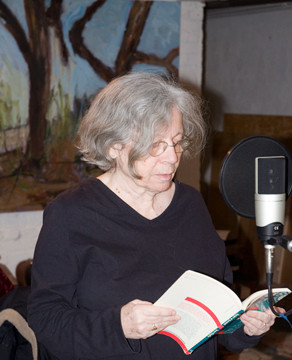What we talk about when we talk about classrooms
Which poems find their way into class?

Things have been a bit less prolific over here than I’d like, but that is only because I’ve been in the classroom much more than behind the computer or the book. I spent one week with a group of amazing teachers at Bard’s Institute for Writing and Thinking, and last week I was working with the Holocaust Educators Network and a group of 24 teachers from all over the world.
As this commentary probably indicates, I’m thoroughly committed to and fascinated by the impact that “experimental” writing (particularly poetry) has in any classroom. At Bard, we worked with poems by Lisa Robertson, Leslie Scalapino, and Cathy Park Hong. My role with the Holocaust Educators Network was different—I worked most closely in a small group with about five high school and junior high school teachers. What struck me was the amount of poetry that these educators use in their classrooms. But, at the same time, I kept finding myself asking—Why poetry? What does the poetry do in your room? What do you, as a teacher, look to poems to do?
For the first time since embarking on this commentary project, I’m not sure what this post is trying to say. I do know that I keep thinking about the push towards narrative poetry in the classroom, and how much I feel like that is shortchanging students of any level. But then, I also wonder how educators come to select poems (outside of pressures from their institutions and districts). And, what work can a poem really do if it is just read once out loud? Is it better to have a poem in the room than none at all?
I’m also admittedly thinking specifically about the poetry that came up last week in the Holocaust Educators Network summer seminar. One high school history teacher begins every class with a reading of a poem by Davi Walders—poems that are “persona poems” all delving into the “character” of women who fought for human rights. These are the first two lines of the poem we read together last week—
“How important to read of heroes,
women and men who blow up tracks”
Another teacher works with prose poems by Carolyn Forche (“The Colonel”), Czelaw Milosz (“Esse”), and Jamaica Kincaid (“Girl”). Strikingly different selections, clearly, but I’m also intrigued by how different they are from my own (and I also used to work with high school students). I remember teaching Charlotte Delbo, Irena Klepfisz, and Else Lasker-Schüler. I wonder what our three processes look like side by side, particularly in the face of such difficult subject matter to “teach.”
Pedagogy and poetry